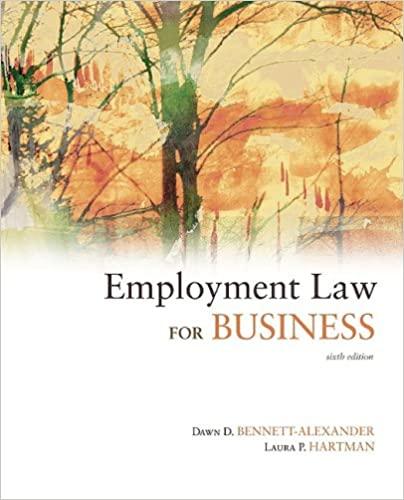Answered step by step
Verified Expert Solution
Question
1 Approved Answer
fix anything in this irac that needs it Issue: Is Ms. Monroe's statement that she didn't mean to hurt George admissible in a criminal action
fix anything in this irac that needs it Issue: Is Ms. Monroe's statement that she "didn't mean to hurt George" admissible in a criminal action against her? Rule: The admissibility of statements made by a defendant during custodial interrogation is governed by the Fifth Amendment to the United States Constitution, as interpreted by the Supreme Court case Miranda v. Arizona. The Miranda warning requires that individuals be informed of their rights, including the right to remain silent and the right to an attorney, prior to custodial interrogation. Any statements made by a defendant during custodial interrogation without a valid waiver of these rights may be deemed involuntary and inadmissible in court. Application: In this case, Ms. Monroe was advised of her Miranda rights by the police officer, and she acknowledged that she understood those rights. However, while being escorted to the squad car, the police officer asked Ms. Monroe if she had anything to say, to which she responded that she "didn't mean to hurt George." This statement was made after Ms. Monroe had been informed of her Miranda rights but before she had been provided with an opportunity to speak with an attorney. Conclusion: Based on the principles established in Miranda v. Arizona and subsequent case law, Ms. Monroe's statement that she "didn't mean to hurt George" is likely to be deemed inadmissible in a criminal action against her. This is because the statement was made during custodial interrogation witho
Step by Step Solution
There are 3 Steps involved in it
Step: 1

Get Instant Access to Expert-Tailored Solutions
See step-by-step solutions with expert insights and AI powered tools for academic success
Step: 2

Step: 3

Ace Your Homework with AI
Get the answers you need in no time with our AI-driven, step-by-step assistance
Get Started


